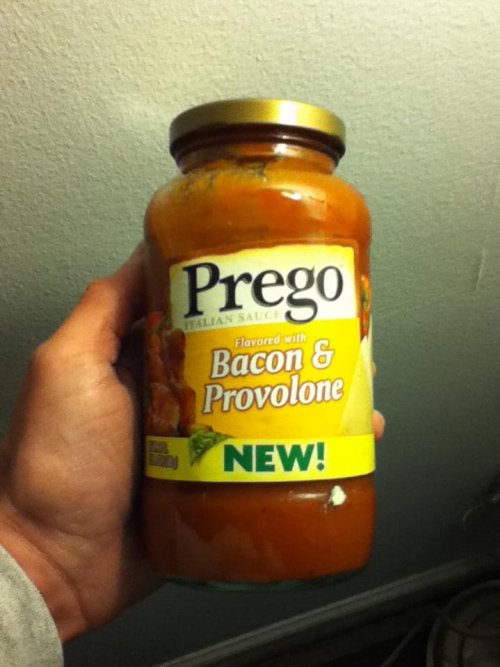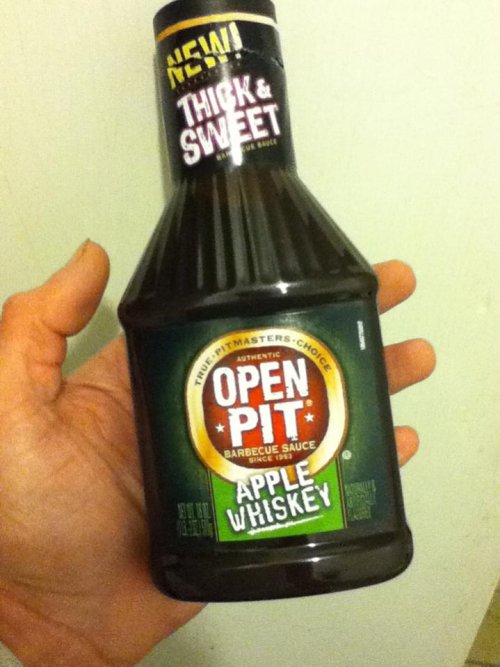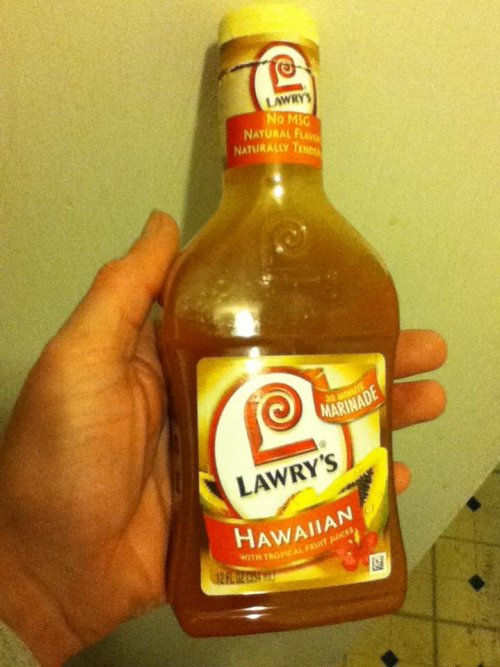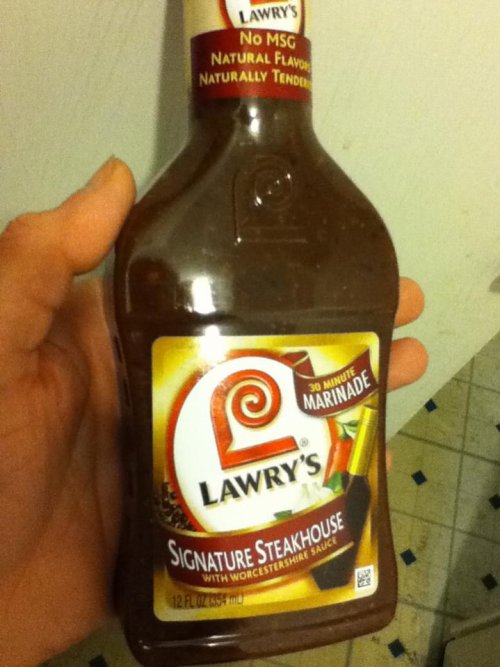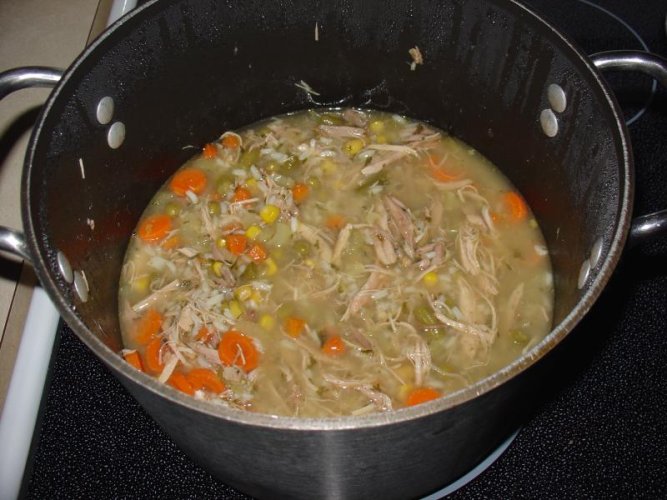-
Welcome to RCCrawler Forums.
It looks like you're enjoying RCCrawler's Forums but haven't created an account yet. Why not take a minute to register for your own free account now? As a member you get free access to all of our forums and posts plus the ability to post your own messages, communicate directly with other members, and much more. Register now!
Already a member? Login at the top of this page to stop seeing this message.
You are using an out of date browser. It may not display this or other websites correctly.
You should upgrade or use an alternative browser.
You should upgrade or use an alternative browser.
Food/Cooking
- Thread starter EeePee
- Start date
Hurricane Sandy food.
Home made chicken noodle soup. This is the soup stock, it has a 4lb. fresh chicken, celery, onion, garlic, carrots, spices. This will cook for about 2.5 hrs., the chicken will get pulled out and the meat will be removed from the bones. The stock will get strained and re-used. Fresh veggies will be browned in the pot, then the soup stock will be added back in, then the noodles and the chicken meat.
The lights keep flickering so I expect them to go out soon, but at least some nice hot comfort food will make it easier to deal with. ( a cooler filled w/ beer won't hurt either.:mrgreen

I had a helper today. If he keeps 'sampling' everything, there won't be enough left for a meal!

update:
the stock was finished, I clicked this pic before I strained it and pulled the chicken meat from the bones.

I got real busy after this pic, so I couldn't stop to take anymore. The stock was strained, fresh veggies were sautee'd (sp?) in the pot, stock was returned into the pot, chicken meat was returned, noodles were added. It has about an hour to simmer so now I have to make the garlic bread.
I just sharpened the knives last week, I found a fresh nick in my thumb, no blood but a nice little chunk of skin missing. Glad I washed off all of the veggies after chopping them up. :mrgreen:
Home made chicken noodle soup. This is the soup stock, it has a 4lb. fresh chicken, celery, onion, garlic, carrots, spices. This will cook for about 2.5 hrs., the chicken will get pulled out and the meat will be removed from the bones. The stock will get strained and re-used. Fresh veggies will be browned in the pot, then the soup stock will be added back in, then the noodles and the chicken meat.
The lights keep flickering so I expect them to go out soon, but at least some nice hot comfort food will make it easier to deal with. ( a cooler filled w/ beer won't hurt either.:mrgreen

I had a helper today. If he keeps 'sampling' everything, there won't be enough left for a meal!

update:
the stock was finished, I clicked this pic before I strained it and pulled the chicken meat from the bones.

I got real busy after this pic, so I couldn't stop to take anymore. The stock was strained, fresh veggies were sautee'd (sp?) in the pot, stock was returned into the pot, chicken meat was returned, noodles were added. It has about an hour to simmer so now I have to make the garlic bread.
I just sharpened the knives last week, I found a fresh nick in my thumb, no blood but a nice little chunk of skin missing. Glad I washed off all of the veggies after chopping them up. :mrgreen:
Last edited:
C*H*U*D
No idea what I'm doing
I've made a bunch of mediocre pot roast in the crock pot lately...
So, new flavor time.
I haven't found a store bought BBQ sauce yet that compares to making it yourself.
I haven't found a store bought BBQ sauce yet that compares to making it yourself.
So, details?
C*H*U*D
No idea what I'm doing
A local BBQ place gives classes all the time. $25 gets you the class, the food cooked in the class, free beers, a recipe book, apron and tongs. Killer deal...I've been several times.
Anyway, the recipe book had a great sauce in it and I no longer like store bought.
Anyway, the recipe book had a great sauce in it and I no longer like store bought.
A local BBQ place gives classes all the time. $25 gets you the class, the food cooked in the class, free beers, a recipe book, apron and tongs. Killer deal...I've been several times.
Anyway, the recipe book had a great sauce in it and I no longer like store bought.
I've never tried your homemade sauce, so I can't compare it but, for a store bought BBQ sauce, this stuff rocks.

^^ that looks fantastic. We make lazy-man's chicken noodle soup in the crock pot all the time. Rotisserie chicken from the grocery store (de-bone and pulled)...broth & water....veggies....herbs....noodles. Same stuff as you, less effort. Not quite as good I'm sure, but we normally make it at the end of the work week when we have no more patience or energy left.
What else do you have planned for the possible long, dark and wet week ahead? My dad used to tell me stories about when they'd dear hunt during the winter at our family lake house in northern minnesota, they'd put a giant pot of hamburger soup on the wood burning stove and just eat it and bread the whole weekend. When the supply ran low, they'd just put in more ingredients! All it was was chop meat, veggies, broth and water...but when all ya need is to stay warm and full, sounds pretty damn good!
What else do you have planned for the possible long, dark and wet week ahead? My dad used to tell me stories about when they'd dear hunt during the winter at our family lake house in northern minnesota, they'd put a giant pot of hamburger soup on the wood burning stove and just eat it and bread the whole weekend. When the supply ran low, they'd just put in more ingredients! All it was was chop meat, veggies, broth and water...but when all ya need is to stay warm and full, sounds pretty damn good!
^^ that looks fantastic. We make lazy-man's chicken noodle soup in the crock pot all the time. Rotisserie chicken from the grocery store (de-bone and pulled)...broth & water....veggies....herbs....noodles. Same stuff as you, less effort. Not quite as good I'm sure, but we normally make it at the end of the work week when we have no more patience or energy left.
What else do you have planned for the possible long, dark and wet week ahead? My dad used to tell me stories about when they'd dear hunt during the winter at our family lake house in northern minnesota, they'd put a giant pot of hamburger soup on the wood burning stove and just eat it and bread the whole weekend. When the supply ran low, they'd just put in more ingredients! All it was was chop meat, veggies, broth and water...but when all ya need is to stay warm and full, sounds pretty damn good!
I actually like to use the rotisserie from Costco, $5 for a 5lb chicken already cooked, you can't beat it. I just didn't want to go too far from the house in case the power shut off, so a fresh chicken was used.
No other menu items at the moment, I have a good stock of Oriental noodles and canned goods ( time to bust out the corned beef and hash!) and the stove and BBQ grill run on natural gas so it's easy to make hot water and cook food. My main concerns are about the big trees wiping out the house.
Hunter711
Come and take them!®
dont slow down
Rock Crawler
Just finished a beer brat with mustard and caramelized onions piled on top. Delicious!
GySgt Hartman
I wanna be Dave
We had Κοκορέτσι at the weekend, no pics but i have a few from Easter
I was intrigued so I searched to find out what that was.
wikipedia said:"Kokoretsi is generally available in restaurants and tavernas year round in Greece, but for the most part it remains a festival dish ordinarily only prepared at home during Orthodox Easter celebrations when it is traditional for Greek families to spit-roast an entire lamb. It serves as a "meze" or appetizer and helps allay the hunger of the celebrants while the whole lamb roasts.
There are naturally, an infinite number of variations in seasonings from region to region and family to family, many having "secret" recipes, but the basic preparation of a kokoretsi remains the same. The "pluck", heart, liver, lungs, kidneys, fat and sweetbreads are removed from the lamb, washed and then sliced into 1/4" to 3/4" pieces and lightly seasoned with salt, black pepper, oregano and sometimes garlic. The pieces of raw meat are then alternately threaded onto a spit about as long as that used for the lamb. Any other desired seasonings are ordinarily added at this point.
The intestine, which has been turned inside out and carefully washed, is rubbed thoroughly with coarse salt and then soaked in vinegar or lemon juice and water. One end of the cleaned intestine is tied to the spit and while one person holds the spit horizontally in both hands and rotates it, another "feeds" the prepared intestine onto the skewered meats from one end to the other and back, forming a compact roll usually about 16"-24" long by 1 1/2" to 3" in diameter. The free end of the intestine is tied off and the completed roll is placed over the coals to roast alongside the lamb and occasionally basted with lemon and olive oil. When done, the skewer is removed, the kokoretsi cut in thick slices about the width of a thumb and served as an appetizer with more lemon and typically accompanied by wine, raki, or ouzo.
Due to outbreak of mad cow disease in the late 90's, banning the consumption of offal was considered. However, the idea was abandoned."
I still think I'd give it a try. "thumbsup"
wikipeeeds said:Due to outbreak of mad cow disease in the late 90's, banning the consumption of AWEFUL was considered. However, the idea was abandoned."
Shit is gnarly!
I was intrigued so I searched to find out what that was.
I still think I'd give it a try. "thumbsup"
Shit is gnarly!
Looks a bit off putting when being prepared and in it's uncooked form, but once it's cooked it's really really tasty.
If you fancy having a go yourself the only thing you really need to be careful about is cleaning out the intestine very very well.
Some more pics of Easter 07





And of course no Greek Easter would be complete without the lamb


See looks pretty tasty when cooked and ready to eat.

Hunter711
Come and take them!®
Very interesting. Making use of every part of the animal.
Great build thread. "thumbsup"
Great build thread. "thumbsup"
XcrawlerkidX
Quarry Creeper
my favorite thing to eat has to be hot/spicy italian sausage with cooked green peper and onions with mayo and sweet baby rays all in a sub roll. so damn good :mrgreen:
C*H*U*D
No idea what I'm doing
Very interesting.
Very intestine-y :ror:

